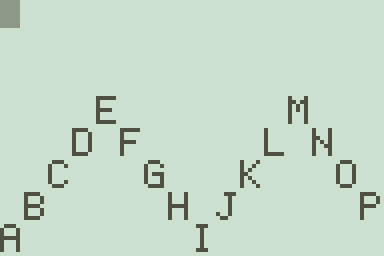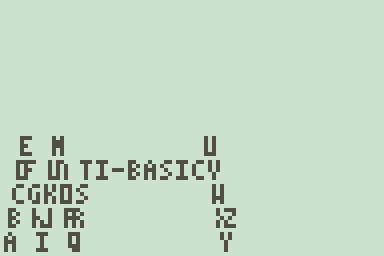A simple one today. Write the shortest program that draws a "sawtooth alphabet" given a positive integer for the height. You must write the name of your programming language when you come to the letter it starts with.
For example, if your language is Python and the input is 1 the output should be:
ABCDEFGHIJKLMNOPythonQRSTUVWXYZ
If the input is 2 the output should be:
B D F H J L N Python R T V X Z
A C E G I K M O Q S U W Y
If the input is 4 the output should be:
D J Python V
C E I K O Q U W
B F H L N R T X Z
A G M S Y
Notes
Aalways starts at the bottom left.- Input can be via stdin or function call or similar. Output to stdout.
- Input above
26doesn't need to work. - No trailing spaces.



